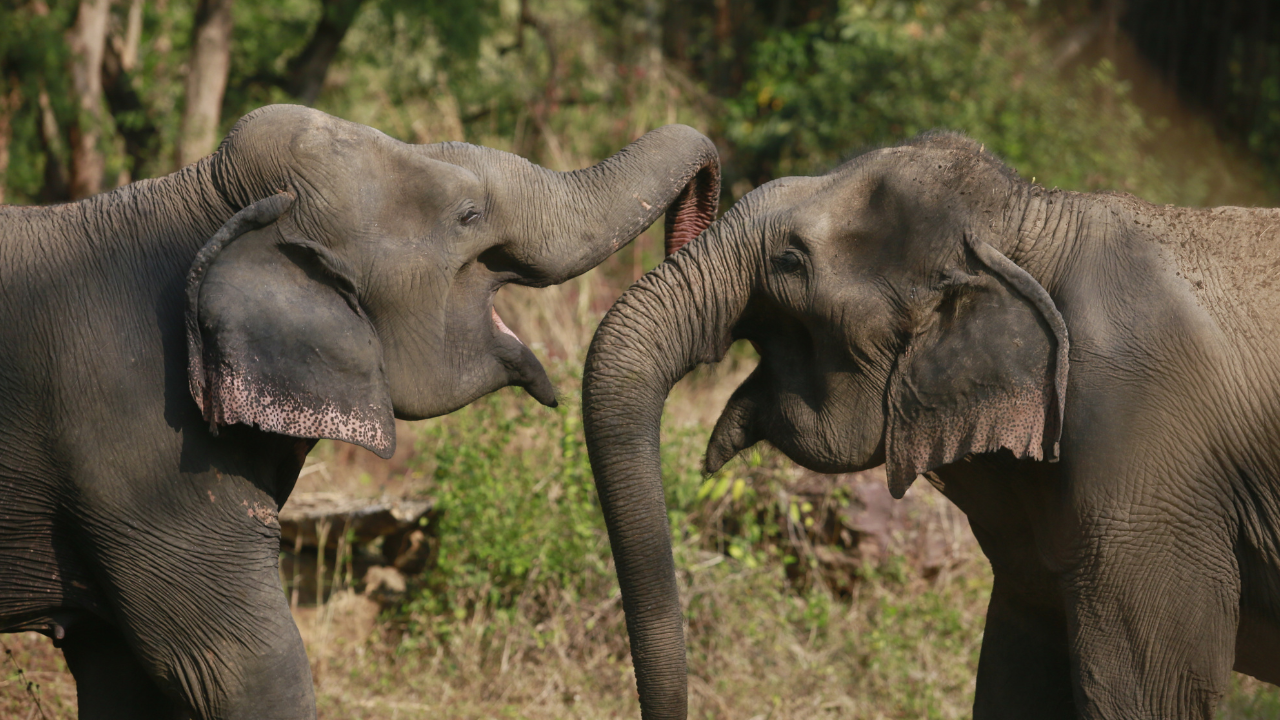Exotic Pets
Each year, millions of wild animals are captured from their natural habitats or born into captivity, just to become pets. Our houses are no home for a wild animal. Learn how we’re tackling it

Animal Awareness Days
Celebrate World Otter Day by learning more about these fascinating creatures, the threats they face, and what you can do to help them.
If you've not heard about World Otter Day before, here's everything you need to know.
World Otter Day (also known as Otter Day or International Otter Day) is held on the last Wednesday in May each year.
World Otter Day is a chance to draw attention to otters, celebrate their unique characteristics, and generate support for their conservation. It's also a perfect opportunity to reflect on the plight of otters who are cruelly kept as exotic pets.
Many otter species - including the sea otter, the giant otter, and the marine otter - are endangered. They face a number of threats to their survival.
In the wild, otter habitats are impacted by oil spills, water pollution, and climate change. Habitats are also being degraded and fragmented due to urbanisation.
However, one of the biggest threats to otters is the exotic pet trade. They are particularly popular as pets in Southeast Asia - a trend that is further fuelled by social media. Content creators are exploiting wild animals, like otters, in a bid to create viral video content.
Behind the scenes, these animals are treated cruelly and kept in inadequate homes where there is no way to replicate the space, freedom, and nutrition that otters would enjoy in the wild.
To celebrate World Otter Day, do your bit to protect these incredible mammals. Here’s what you can do:
Many animals need your help. Find out about other animal awareness days.

Donate now
When you make a donation, you’ll join a passionate group of supporters who are determined to change the world for animals. We're fighting animal cruelty wherever we find it — are you with us?
Click to donateAn otter is a wild animal and it is cruel to keep a wild animal as a pet.
Whether an otter has been taken from the wild or has been bred in captivity, it is impossible for pet owners to meet their needs properly.
Otters belong in the wild, in aquatic habitats like rivers, lakes, and oceans. If you see an otter in the wild, keep your distance so as not to disturb them.
Avoid going to places that keep otters in captivity and those that allow human interaction. These facilities are cruel and should be boycotted.
Otters eat fish, crustaceans, small birds, and eggs. River otters eat 15% to 20% of their total body weight every day. Sea otters eat more - around 25% to 30% of their body weight. This means a large male could eat as much as 11 kilograms of food in a day.
Each year, millions of wild animals are captured from their natural habitats or born into captivity, just to become pets. Our houses are no home for a wild animal. Learn how we’re tackling it
At World Animal Protection sentience is at the heart of everything we do, click to find out more.
Ending commercial exploitation
Wildlife farming is the commercial breeding and raising of wild animals. Learn how you can take action to prevent their exploitation.